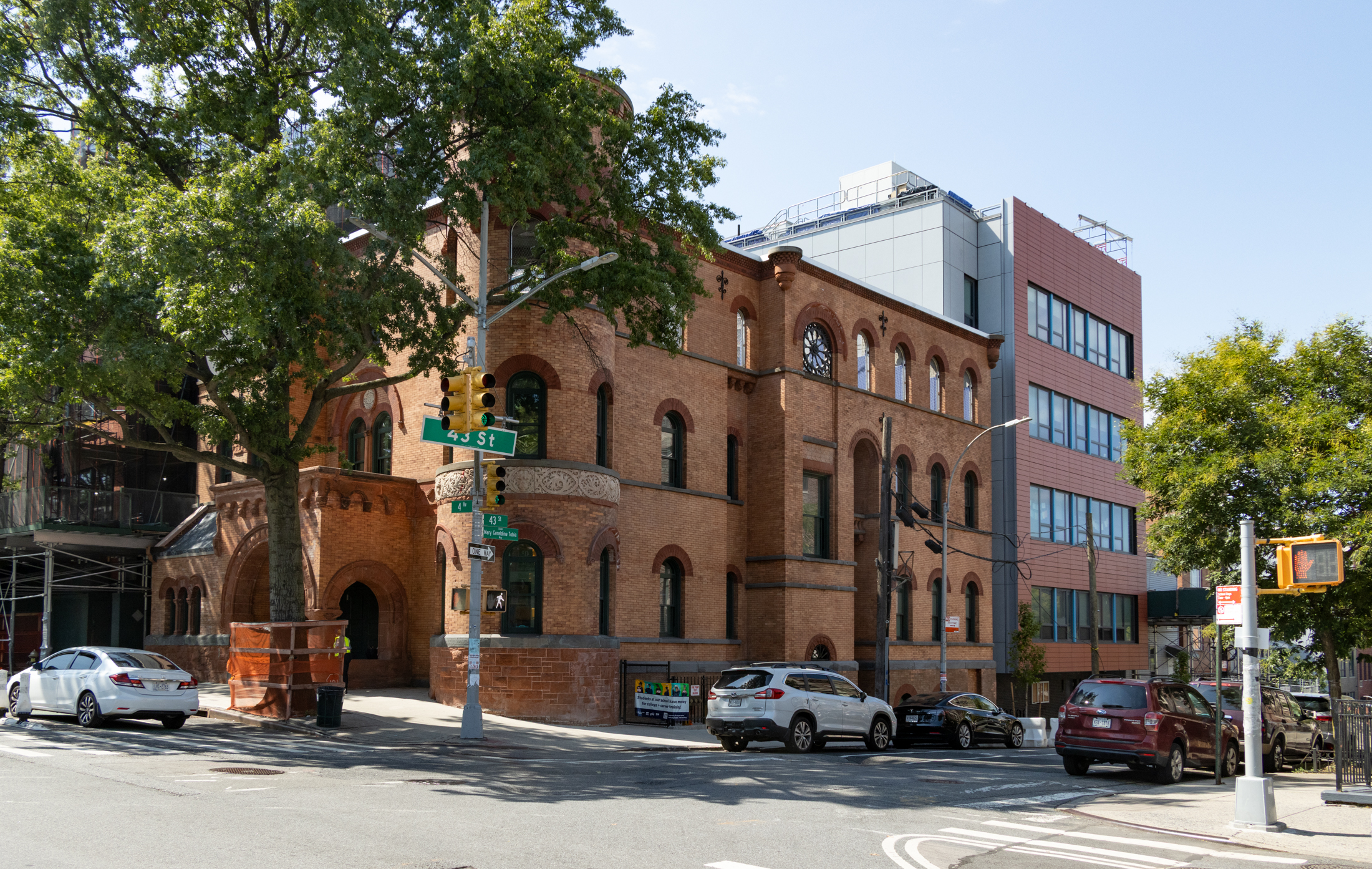George Bush Wants My Family to be Homeless
We have to admit we’ve been trying our best to block out the news over recent weeks of President Bush’s proposal to do away with the home mortgage deduction–we get a pit in our stomach whenever we think about it. Like many recent purchasers of homes in hot coastal markets (which, by no coincidence are…
We have to admit we’ve been trying our best to block out the news over recent weeks of President Bush’s proposal to do away with the home mortgage deduction–we get a pit in our stomach whenever we think about it. Like many recent purchasers of homes in hot coastal markets (which, by no coincidence are teeming with Liberals), elimination of this tax break would have a fairly drastic effect on our ability to stay in our home.
The pundits are talking about how such a change would bring home values down by 10-20%, but we think they are only taking into consideration the change in demand; in markets like New York, where many people have stretched over recent years to buy a home, the result could be much more dramatic on the supply side, as thousands of families could find themselves in the position of being forced sellers. The definitions of “rich” used to set the minimum hurdle rates for the small deductible portion of a mortgage that would remain are woefully out-of-whack with reality in cities like New York where most people spending $1 million on a home are far from wealthy. The larger impact on the economy–from a decline in real estate tax revenue to population decline–could be devastating under that scenario.
Let’s say someone earning $180,000 a year ($15,000 a month pre-tax, maybe $9,000 a month after) purchased a house at some point in the last few years for $1,250,000, putting down $250,000 and taking a $1 million mortgage. Let’s also say she’d gotten a 6%, 30-year mortgage, making her monthly payment roughly $6,000. For the sake of simplicity, let’s say taxes and maintenance, etc., add up to another $1,000.) Under current rules, her after-tax housing expense would be more like $5,000 than $7,000; the proportions get even more extreme if she has some rental income–maybe $3,500 versus $5,500. The difference in what’s left over to pay for groceries, utilities, tuitions, etc. is $5,500 versus $3,500–huge when you’re talking about a family of 4 or 5.
Now, we don’t think there’s any defensible intellectual reason that home ownership should enjoy the privileged status it does in our tax code, but to change the rules of the game at this point when millions of people have made the largest financial decision of their lives based on one set of ground rules would be a bait-and-switch of monster proportions. Some experts say the chances of these changes getting through are low, but, in the meantime, we’re going to have to go back to living in denial. The alternative is too much of a downer.
Goodbye, My Sweet Deduction [NY Times]





As for “it’s the stock price not the dividends,” check out The Future for Investors by Jeremy Seigel. He takes apart that fallacy (which he calls the growth trap).
“Yes, indeed< Josh, you'd better sell -- if you've been trying to live off stock dividends, you'd have done much better investing that money in many other areas." I thought this thread died. I have about 30 names, regular stocks, MREITS, REITS, ConRoys, pfrds. My portfolio's cap gains are up about 9% a year. But the divs run about 4.5% after tax and have paid for most of our rent. If we would have taken this $ and bought an apt w/it similar to what we rent we would be spending a lot more every month and our cap gains would be entirely based on our apt's appreciation or depreciation.
[I mean “no.” As I understand it, what AMT does is to disallow certain deductions, among them property taxes and state and local income taxes, then recompute what your tax would be without them.
Mortgage interest is NOT one of the deductions that AMT disallows.
I am not a tax pro, so if I am wrong, please correct me.]
What that person is saying is very simple, even if the calculation and application of AMT is not. Basically, even if mortgage interest is not one of the deductions that AMT disallows, if you are in a high tax state and on a certain income (in the low six figures) then the rate that AMT calculation comes up with, that has to be applied to your income after the allowed deductions, is high enough to render any allowed deductions to be useless means. This is because AMT forces you to pay a certain mimimum amount of taxes that is invariably higher than the amount that you get by applying that mortage interest deduction. Hence it is of no benefit.
Only 37% of this nations people have any faith in this president. This tax talk is just another distraction.
Yes, indeed< Josh, you'd better sell -- if you've been trying to live off stock dividends, you'd have done much better investing that money in many other areas. Surely you're kidding with that comment. What stocks do you own (and how many shares of them) that pay you enough money to live off the dividends? And not only that, but what's happened to their share prices?
Are you kidding me? Someone making $180k a year with a 1.25 million dollar home is not wealthy? The median household income in this country is something like 50k. Even in Fairfax County, VA which I think is still the wealthiest county, median income is only 90k.
Boo hoo hoo. I’m sure there’s a single mom trying to raise two kids on a teacher’s salary ready with a shoulder for you to cry on that you can’t afford your precious brownstone. Guess you’ll have to go find a new neighborhood to gentrify.
The fact is that the mortgage interest deduction is inherently unfair and regressive aspect of the tax code. Since poorer folks rent, the wealthier inherenly benefit. Now there is not the political cahones in Washington for this ever to pass, so there is little to worry about. This is the Times trying to get the Liberal Latte Sippers pissed off at Bush. Its called playing to the choir. Its interesting how global war, the degradation of basic legal rights and rampant corruption barely raises an eyebrow these days, but threaten the vaulted value of one’s beloved brownstone. Well now there is hell to pay.
Use your brains for five seconds here, who votes Republican, it sure is not the poor. This proposal is dead on arrival. The goal of the Republicans is to remove the last vestiges of New Deal America by eliminating progressive tax rates. In exchange they want to remove deductions in order to make tax collection more efficient. The ideal situation for the Republicans is a flatter tax with deductions. The mortgage interest rate deduction will be saved probably with some dash of dramatic rhetoric from our esteemed legislators about how home ownership embodies the American Dream, ad nauseum.
The real problem with the current tax structure is that besides being regressive, it distorts the market place by encouraging an overinvestment in the housing sector, in particular the luxury housing sector. Not only is the New York City economy unhealthily dependent upon the “wealth creation” of housing appreciation, but the entire country’s economy is now based upon building and furnishing homes. Much like tech stocks before, this investment bubble will not serve the country well in the long term, as money that could be going into investments in that are actually wealth producing as opposed to condos with his and her walk-in closets. The government should not be encouraging one investment over another unless there is a compelling reason to do so. I would also like to add that the “studies” that show the benefits of home ownership are basically weakly veiled arguments to justify a tax break. You support the tax break because it works to your advantage, not because encouraging home ownership makes you a more loving spouse or better patriot. If you controlled for income (NYC and Cali nothwithstanding) what those studies will show is that people with a basic modicum of income and steady employment do better than poor people who cannot hold down a job.
Sure the cap is sticking it to the Northeast and California. Here’s a tip start voting Republican and this problem will go away. Republicans are smart, they will use this as a bargaining chip to get something out of the democrats, probably more cuts to welfare or public transit, which the democrats will gladly give up to protect wealthier homeowners in their districts. But at the end of the day, Republicans have no interest in this passing as they will protect the owners of million dollar homes in Texas till the day they die.
Long-term, taxes are going up — the current deficit (not just cash deficit, but the balance sheet deficit associated with social security, etc) is rising too quickly.
At least by reducing the tax on high-end homes, we can rebalance allocation of resources. Way too much money in this country over the past 10 years has been invested in real estate, which unlike corporate investments (stocks, bonds) and municipal investment (education, infrastructure) does not serve to increase GDP or create jobs. It’s ludicrous that in some boom cities 30% of new jobs in recent years were in construction — and it’s not sustainable.
Better to remove the tax shield on real estate while still helping out people below the median with at least getting a roof over their head. Yes, homeowners will still take a hit on valuation if they bought recently — but in the long term we won’t all have a ridiculous amount of our savings and net worth tied up in what is essentially a non-productive asset.
“What do you mean “no”? If you get hit with the AMT, your deductions are useless after a point.”
I mean “no.” As I understand it, what AMT does is to disallow certain deductions, among them property taxes and state and local income taxes, then recompute what your tax would be without them.
Mortgage interest is NOT one of the deductions that AMT disallows.
I am not a tax pro, so if I am wrong, please correct me.